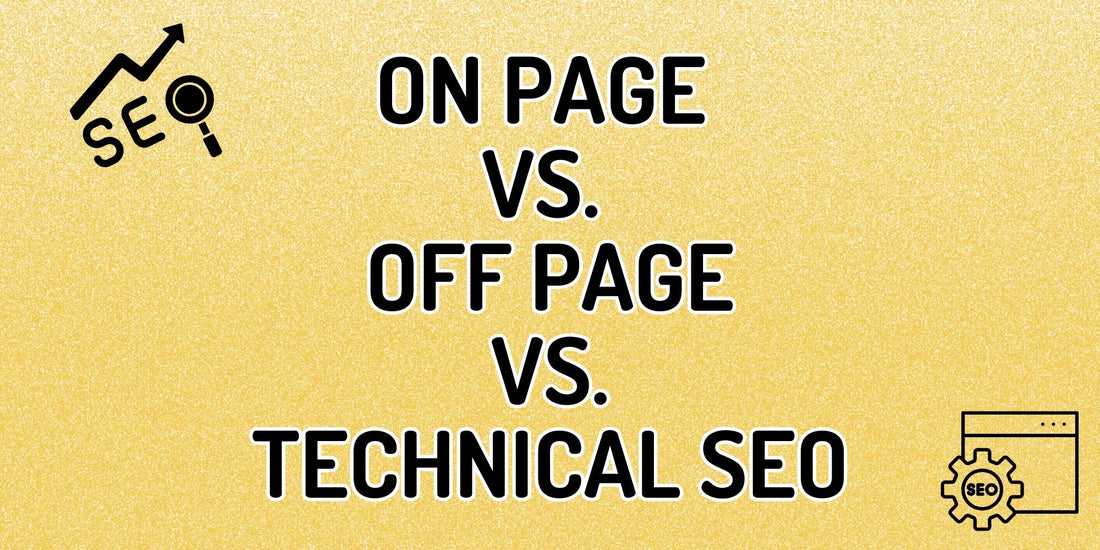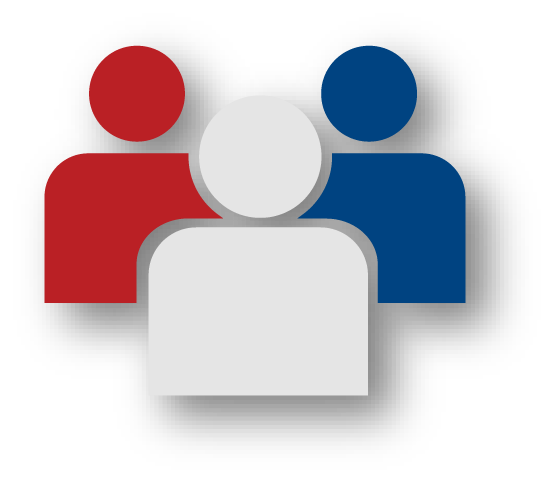On-Page SEO vs. Off-Page SEO vs. Technical SEO: What’s the Difference?
Docsico Private Limited
On-Page SEO vs. Off-Page SEO vs. Technical SEO – What’s the difference? Learn how each type impacts Google rankings, plus expert tips, FAQs, and data-driven insights to boost your website’s visibility. 🚀
Search Engine Optimization (SEO) is essential for increasing website visibility on Google and other search engines. But SEO isn’t just about keywords it includes On-Page SEO, Off-Page SEO, and Technical SEO, each playing a crucial role in ranking higher and driving organic traffic.
According to a study by BrightEdge, over 53% of website traffic comes from organic search, highlighting the importance of a strong SEO strategy.
In this guide, we’ll break down the three types of SEO, their differences, and how they work together to improve search rankings.
On-Page SEO vs. Off-Page SEO vs. Technical SEO
1. On-Page SEO: Optimizing Content & Website Elements+
On-Page SEO refers to optimizations within your website that help search engines understand your content and improve rankings.
Key Factors of On-Page SEO:
- 📌 Keyword Optimization: Placing relevant keywords naturally in titles, meta descriptions, and content.
- 📌 High-Quality Content: Creating valuable, informative, and engaging content (long-form blogs perform 77% better in search results).
- 📌 Meta Tags Optimization: Writing compelling title tags (under 60 characters) and meta descriptions (under 160 characters).
- 📌 Internal Linking: Connecting relevant pages within your website to improve navigation.
- 📌 Image Optimization: Using compressed images and ALT text for better visibility.
- 📌 User Experience (UX): Improving page layout, readability, and engagement.
🔹 Example: A blog titled "Best Running Shoes for Beginners" should include keywords like "best running shoes," "running shoes for beginners," and "top-rated running shoes" to attract organic traffic.
📊 Did You Know?
- Websites with optimized title tags and meta descriptions see a 5.8% higher click-through rate (CTR).
- Google ranks long-form content (1,800+ words) 56% more frequently in the top 10 search results than short articles.
2. Off-Page SEO: Building Authority & Trust+
Off-Page SEO involves external activities that increase website authority and credibility. Google’s ranking algorithm considers backlinks as a major ranking factor, with top-ranking pages having 3.8x more backlinks than lower-ranking pages (Backlinko study).
Key Factors of Off-Page SEO:
- 📌 Backlinks: Getting links from authoritative websites (92% of top-ranking pages have at least one backlink).
- 📌 Guest Blogging: Writing high-value articles for other websites to earn backlinks.
- 📌 Social Media Engagement: Increased social shares improve brand visibility and search rankings.
- 📌 Influencer Marketing: Partnering with influencers to drive traffic and brand mentions.
- 📌 Brand Mentions: Being referenced by authoritative sites, even without a link.
🔹 Example: If a top digital marketing blog links to your SEO strategy guide, it signals to Google that your content is valuable, improving rankings.
📊 Did You Know?
- Websites with a strong backlink profile rank 50% higher in Google search results.
- Pages with high-authority backlinks receive 74% more organic traffic than those without backlinks.
3. Technical SEO: Enhancing Website Performance & Crawlability+
Technical SEO ensures that search engines can crawl, index, and rank your site effectively.
Key Factors of Technical SEO:
- 📌 Website Speed: Google recommends page load times under 3 seconds (40% of users leave slow websites).
- 📌 Mobile-Friendliness: Over 60% of Google searches come from mobile devices.
- 📌 Secure Website (HTTPS): Websites with SSL certificates rank higher.
- 📌 XML Sitemap: Helps search engines navigate your site structure.
- 📌 Robots.txt: Guides search engines on which pages to index.
- 📌 Structured Data (Schema Markup): Helps Google understand your content better.
🔹 Example: If your website loads in 2 seconds instead of 5, it can reduce bounce rates by 32% and improve rankings.
⭐ 2. Improve Customer Ratings & Reviews
Customer feedback directly impacts rankings and conversions. Improve your ratings by:
- ✔ Ensuring fast delivery: Myntra prioritizes fast-moving sellers.
- ✔ Providing high-quality products: Avoid defects and low-quality items.
- ✔ Engaging with customers: Promptly respond to customer queries & issues.
📌 Tip: Offer post-purchase support to encourage positive reviews.
📊 Did You Know?
- 53% of mobile users leave a site that takes longer than 3 seconds to load.
- Google gives preference to HTTPS websites, improving their rankings by 5% or more.

On-Page SEO vs. Off-Page SEO vs. Technical SEO: Which is More Important?
| SEO Type | Purpose | Key Factors |
|---|---|---|
| On-Page SEO | Optimizes content & structure | Keywords, content, meta tags, internal links |
| Off-Page SEO | Builds website authority | Backlinks, social signals, brand mentions |
| Technical SEO | Improves website performance | Speed, mobile-friendliness, HTTPS, crawlability |
All three are essential for ranking higher and attracting organic traffic.
Frequently Asked Questions (FAQs) About SEO
1️⃣ What is SEO, and why is it important?+
SEO helps websites rank higher on search engines, increasing organic traffic and visibility.
2️⃣ How long does it take to see SEO results?+
SEO results typically take 3 to 6 months, depending on competition and strategy.
3️⃣ What are the best SEO tools?+
Popular tools include Google Analytics, Ahrefs, SEMrush, Moz, and Screaming Frog.
4️⃣ What is keyword research, and why is it important?+
Keyword research helps find the most searched terms to target in content for better rankings.
5️⃣ What is Domain Authority (DA)?+
DA is a score (1-100) that predicts a website's ranking ability, influenced by backlinks and trust.
6️⃣ How many backlinks do I need to rank?+
There’s no fixed number, but quality matters more than quantity.
7️⃣ What is the ideal blog post length for SEO?+
Google favors long-form content (1,500-2,500 words) for competitive keywords.
8️⃣ What is a bounce rate, and why does it matter?+
Bounce rate measures users leaving after visiting one page. A high bounce rate can hurt SEO.
9️⃣ Is HTTPS necessary for SEO?+
Yes, HTTPS improves security and is a Google ranking factor.
🔟 What is the role of social media in SEO?+
Social signals (shares, engagement) indirectly impact rankings by driving traffic.
1️⃣1️⃣ Does page speed affect SEO?+
Yes, slow websites lose rankings and visitors. Optimize loading time under 3 seconds.
1️⃣2️⃣ Can I do SEO myself, or should I hire an agency?+
Small businesses can start with basic SEO, but hiring an SEO agency ensures better results.
1️⃣3️⃣ How often should I update my website content?+
Updating content every 3-6 months improves rankings and keeps information relevant.
1️⃣4️⃣ What is local SEO, and why is it important?+
Local SEO helps businesses rank for location-based searches, essential for small businesses.
1️⃣5️⃣ What is the best way to build backlinks?+
Guest blogging, content marketing, and digital PR are effective for high-quality backlinks.
Boost your website’s visibility and drive organic traffic with expert SEO strategies.
Want to rank higher on search engines?
Explore Our SEO Services
















